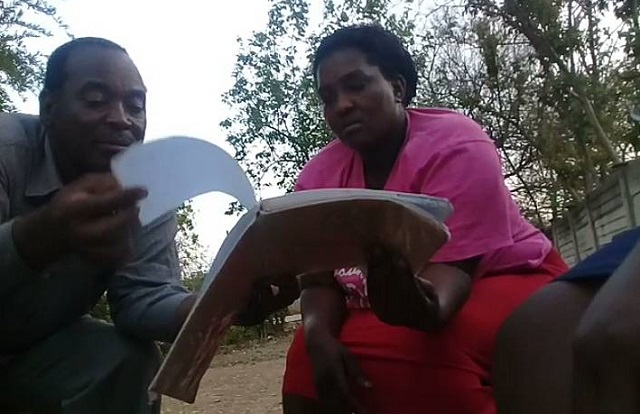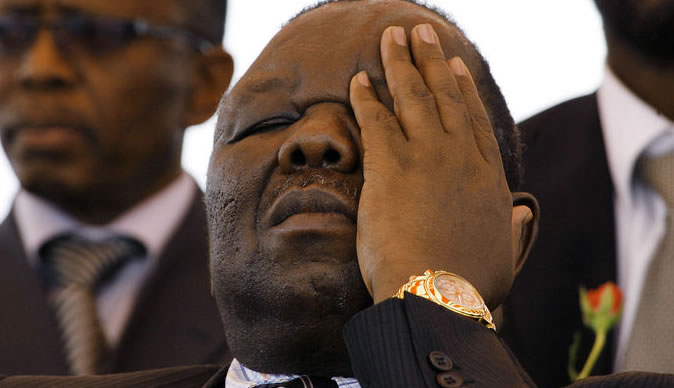Suicides becoming worrying trend

Andile Tshuma, Features Reporter
Mental illness and suicidal thoughts can affect anyone, of any age, from any background, at any time.
Similar to physical illnesses, people do not choose to have mental health problems and need the appropriate care to get better.
Mental illness and suicidal thoughts are common among teenagers and it can be difficult to know if a child is suffering from it as they often keep it to themselves.
Recently, a 14-year-old Townsend High School pupil committed suicide after her mother told her to do her schoolwork before watching television.
Nomakhwezi Nkomo hanged herself with her younger brother’s belt from a screen door at their Sunninghill suburb home in Bulawayo.
It is believed she could have been depressed but failed to articulate her feelings resulting in the suicide.
Before the suicide, her mother, Mrs Mendo Nkomo had told her to polish her school shoes and write her homework before watching television soap opera, Generations.
Her younger brother is said to have been the first to find the body at around 9PM.
Following the tragic incident, Nomakhwezi’s family is now going through counselling sessions with Contact Family Counselling Centre, after her father, Mr April Nkomo, appealed for professional counsellors to assist his family to deal with the loss through psychotherapy.
Seeking counselling services is a rarity in African society, but Mr Nkomo said he felt it was necessary in aiding his family through the grieving process.
He described Nomakhwezi as a gentle, reserved and obedient child, who was responsible as the eldest child and always took care of her younger brothers.
“I’m failing to sleep of late as I’m trying to figure out where we could’ve failed as parents because as far as I’m concerned, all was well in the home. My daughter was as bubbly, obedient and brilliant girl. Before the suicide, she was generally her usual self. She was reserved and quiet at times, so I’m beginning to wonder if something was eating her up all this time and I knew nothing about it.
“I feel bad and I sometimes feel that I’ve failed as a parent. My children need help to get through this difficult time,” said Mr Nkomo.
Scores of people suffer from mental health illnesses without even realising it. Children especially may fail to articulate what they feel.
Adults may experience feelings of depression but be ashamed to speak to a health professional or brush them aside and pass them off as something minor until it is too late.
Ingutsheni Central Hospital clinical director Dr Wellington Ranga sad it was vital for everyone to undergo psychological evaluation on a regular basis to ensure that all mental illnesses are diagnosed early and treated.
Dr Ranga said mental health was overlooked in Zimbabwe as very few people recognised the need for professional counselling if going through any social and psychological challenges.
He said members of the public do not seek help when going through challenges that threaten their psychiatric wellbeing, leading to conditions such as depression, which contribute to the rise in suicide cases countrywide. “People don’t take mental health issues seriously. There’s a lot of stigma around mental health issues. People assume that the only mentally ill people are those that are dirty and cause havoc in the streets yet quite a lot of people are leading seemingly normal lives yet suffering from different types of mental ailments,” said Dr Ranga.
He said more females contemplated suicide than men although more men actually executed successful suicides.
Dr Ranga said studies showed that more women attempted suicide as an attention seeking mechanism and most successful suicides in females would have been attention seeking drills gone wrong.
The psychiatrist said there were three main factors that led most people to suicide; a chance of mental illness, depressive illness or substance abuse.
Dr Ranga said other factors were defence or coping mechanisms in which a person would have failed to contain or cope with a particular situation or experience.
“I strongly advise people to take mental health issues seriously. It’s not only people admitted in psychiatric institutions who have mental ailments so if someone has problems, they should seek help.”
In the African context, men are socialised to stomach all their problems and brave through them like “real men”.
They are taught that men do not cry, they stay strong and remain valiant even when they are broken inside.
Mr Nkomo’s decision to seek psychotherapy is commendable as men do not often think to do so due to the way they are socialised. Most choose to be heroic and do not admit any weakness or hurt.
Padare/Enkundleni/Men’s Forum on Gender programmes officer Mr Ziphongezipho Ndebele said socialisation is the leading cause of why most men shun therapy in Africa and beyond.
He said it was remarkable for Mr Nkomo to realise the need for therapy for him and his family as such mindsets were not common in the country.
“Men from a tender age are told that they have to be strong because they’re men and this makes them feel that strong people don’t have to seek counselling or therapy. For most men, seeking counselling is a sign of weakness and that’s why most of us tend to want to bottle everything up,” said Mr Ndebele.
He said most men considered suicide if they felt cornered by a situation and opted to end their lives as an outlet valve.
“Pride is yet another problem that we have to deal with. A man would rather protect his ego and lose everything else. Society tends to ridicule men who seek professional assistance to deal with challenges and this becomes problematic. Sometimes a man’s psychological problems end up affecting the whole family as all the negative energy that he’ll be having can affect everyone in the home. That’s when you find unhappy children, a disgruntled mother, and the family as an institution doesn’t function well,” said Mr Ndebele.
He said this was a volatile situation as children need attention and when all is not well at home, children suffer the most. “People should just seek help and our society should shift from the old ways of assuming that men who seek help are failures.” said Mr Ndebele.
Psychiatrists and other mental health experts continuously inform members of the public about the need to keep their mental health in check.
Highlighting a series of suicide cases in the city over the past few months, a psychiatrist who refused to be named for professional reasons said most of his patients were in denial and would refuse to take depression medication as a result of fear of stigmatisation.
“People are afraid of being stigmatised and stereotyped as mad and will do whatever it takes to stay away from us. When they come for help, most times the situation would be so bad we would have to admit them into an institution. Some would be contemplating suicide,” said the pyschiatrist.
Contact Family Counselling Centre director, Ms Thenjiwe Ngwenya, said it was important for families to seek counselling as a group or as individuals when going through emotional crises.
“Suicide is a worrying trend in the country and as a behavioural expert, I would say that someone thinks of taking their own life after having failed to find a way to solve a conflict with self or with any external factor; be it another person or a situation. It’s always better to talk to someone. We have trained professionals who can assist families free of charge if they can’t afford to pay for the counselling service,” said Ms Ngwenya.
She said men and women were equally in need of counselling yet statistics in Zimbabwe show that less people considered professional counselling necessary.
Nomakhwezi’s family has started receiving counselling sessions as mental health experts have expressed the need for members of the public to be wary of their mental health status.
Ms Ngwenya encouraged other families and individuals to visit the centre if encountering any family, marital, health or personal problems for counselling.
It is, however, worrying to note that despite various psychotherapy systems in place, more and more people, particularly adolescents, continue to make headlines after committing suicide.
Bulawayo provincial education director, Mrs Olicah Khaira, said suicide was becoming a disturbing trend among school going youths.
“We’re worried about this growing trend of children resorting to ending their lives when facing various challenges in life,” said Mrs Khaira.
She advised pupils and parents to make use of guidance and counselling officers that are available in every school.
According to family relationship experts, teenagers who commit suicide may be more vulnerable as a group to respond impulsively to interpersonal challenges.
Younger children are also more likely than their older peers to have relationship problems with family members or friends, and much less likely to have troubles with girlfriends or boyfriends.
It is important to ask children directly about suicide if there is a safety concern.
Parents, school personnel, and healthcare professionals need to know the warning signs of suicide like sudden withdrawal from friends or activities, extended unhappiness or increasing aggressiveness or irritability and what steps to take when these signs are present.
@andile_tshuma










Comments